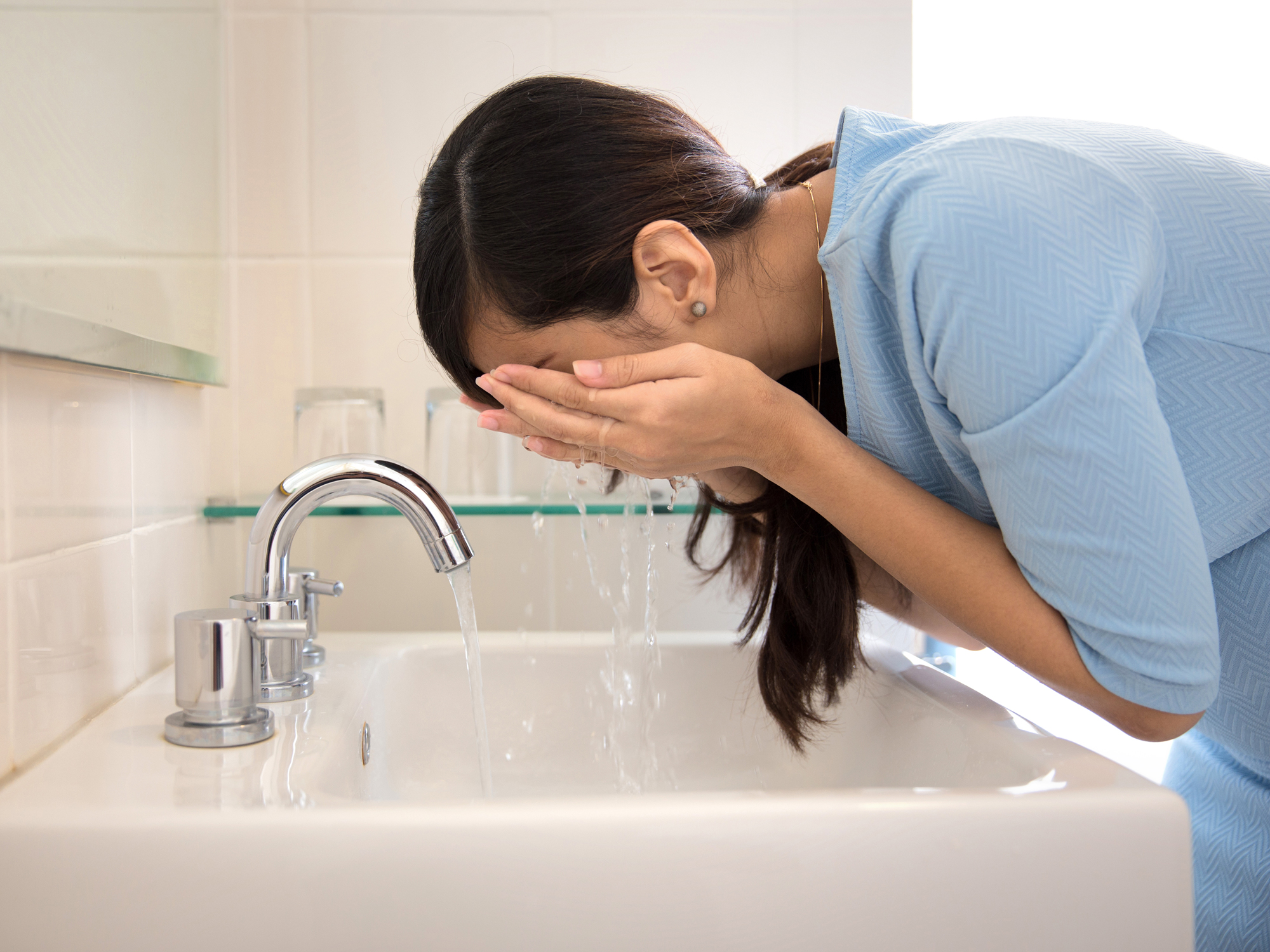Get Easy Health Digest™ in your inbox and don’t miss a thing when you subscribe today. Plus, get the free bonus report, Mother Nature’s Tips, Tricks and Remedies for Cholesterol, Blood Pressure & Blood Sugar as my way of saying welcome to the community!
Why hard water is hard on your health

Taking good care of your skin is the best way to maintain a healthy, youthful glow well into your older years. But the importance of maintaining healthy skin goes far beyond physical appearance…
Your skin is a protective barrier that shields you from harmful bacteria, free radicals and other environmental troublemakers that threaten your body.
So how do you keep your skin strong and healthy, so it not only looks good but does its job as your prime protector from the harsh outside world?
Well, you may want to start in your sink and shower… because the water that you’re washing with every day could be causing serious skin damage…
Hard water is hard on your skin
You’ve probably heard that hard water (water that contains high mineral content) is hard on your pipes and appliances… but it’s also hard on your skin.
A recent study from researchers at the University of Sheffield and King’s College London found that hard water damages your skin barrier. That means it makes you more susceptible to bacteria, sunburn, irritants in your soap and personal care products, and any other harsh elements your skin’s confronted with on a daily basis.
Even worse, the study found that hard water can make you more likely to develop (or aggravate an existing case of) eczema — the itchy, red, uncomfortable skin condition that plagues over 30 million Americans.
Why is hard water so darn hard on your skin?
Well, a lot of it has to do with pH. The pH of your skin is typically acidic, but hard water has an alkaline pH. As a result, hard water interferes with your skin’s natural pH, which makes your skin susceptible to bacteria and infection.
Now, full disclosure here… this study was funded by a water softener company, so they have an interest in convincing you to buy a water softener. But the connection between hard water and skin troubles has been demonstrated before. It can lead to problems like dry skin, acne and, of course, eczema, so don’t let the water softener company’s involvement steer you away from finding a solution for your skin.
How do you know if you have hard water?
You may be wondering how you know if you have hard water…
Well, it’s pretty easy to tell even without testing it. If you know your water comes from a well, for example, then it’s a safe bet that it’s hard water.
Other obvious signs of hard water include a funny smell or taste, residue on your dishes and clothes after washing them, stains in your toilet and mineral build-up on your water fixtures.
If you know your water is hard, you should probably go ahead and invest in a water softener. Not only will it help your skin, but it will make your appliances last longer, keep your pipes from getting clogged and prevent some of the unpleasant side effects (like the smell, residue and stains) listed above. If you’re not sure if your water is hard, you can buy an at-home water testing kit to find out for sure.
Once you get a water softener, your water should be much safer for your skin. But you can protect your skin even more by:
- Using sunscreen daily
- Staying away from cigarettes
- Eating lots of fresh vegetables, fruits and healthy fats
- Avoiding harsh, chemical-filled personal care products and opting for simple, natural ones instead
- Taking time to de-stress through meditation, yoga, massage or any other activity that makes you feel calm and relaxed
Editor’s note: While you’re doing all the right things to protect your brain as you age, make sure you don’t make the mistake 38 million Americans do every day — by taking a drug that robs them of an essential brain nutrient! Click here to discover the truth about the Cholesterol Super-Brain!
Sources:
New academic study reveals true extent of the link between hard water and eczema — MedicalXpress. Retrieved September 26, 2017.
“The Effect of Water Hardness on Surfactant Deposition Following Washing an Subsequent Skin Irritation in Atopic Dermatitis Patients and Healthy Controls.” — Journal of Investigative Dermatology, 2017.
What is Eczema? — National Eczema Association. Retrieved September 26, 2017.
Hard Water Dermatitis — DermaHarmony. Retrieved September 26, 2017.
Hard Water: 8 Major Signs You Have Problems in Your Home — Water Right Group. Retrieved September 26, 2017.
Skin care: 5 tips for healthy skin — Mayo Clinic. Retrieved September 26, 2017.













